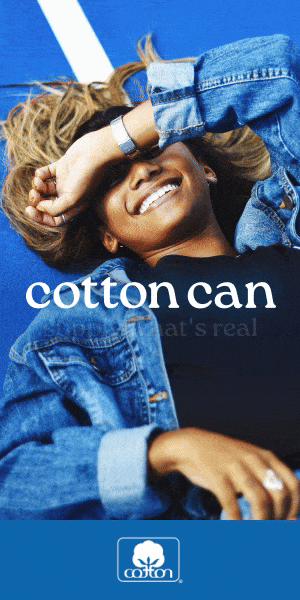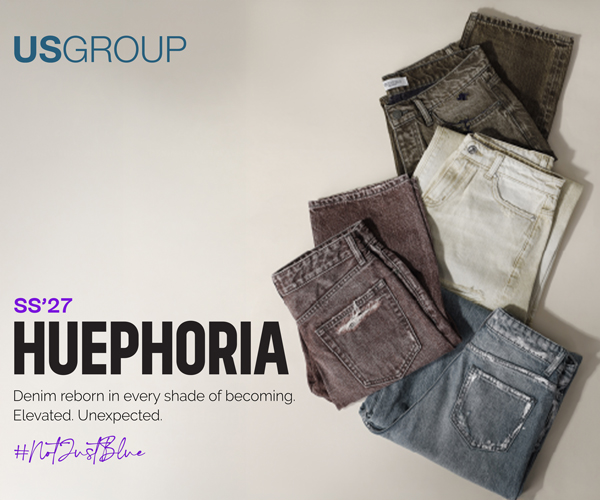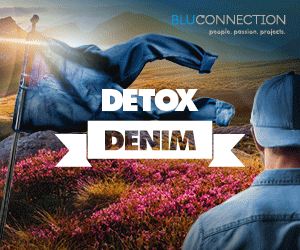Miko Underwood: Mighty oaks from little acorns grow

New York-based brand Oak & Acorn - Only for the Rebelles pays homage to the untold story of the Indigenous American & the enslaved Africans’ contributions that have shaped American manufacturing and denim. Founder Miko Underwood explains how she expresses her vision through her designs and why she feels now is the right time to educate and inspire to drive positive change.
Q Why is it important to educate consumers on the history of denim, and what are the main things that you would like people to know and understand?
A Today’s consumer expects to be informed of where their clothing comes from, who the designer is and the brand’s ethos. When I began to learn the history of the American jean, the information demanded me to be culturally responsible and share. As a design director with years of telling brand stories, I was completely unaware of indigo’s history and its connection to the slave trade. The desire for “blue gold” otherwise known as indigo propelled global commodification and the violent exploitation of labour. I want people to know that indigo was the hidden commodity of the slave trade and that the jean was born on the plantations of the American south. I would like consumers to be informed of the abuses that exist today in the US with labour exploitation throughout the American prison system and our global supply chain.I believe education is the key to change and holds us accountable. By bringing awareness to practices that have brutally capitalised off the labour and skillset of Indigenous people and continues to exploit factory workers today, it is my hope that we can begin to institute real positive change.
Your designs reflect the ethos of the brand. How easy is it to do that, where does your inspiration come from and how does the genderless and seasonless design fit into that? How do your fabric choices reflect the brand?
During the pandemic, I thought to myself, “How will we come out of this? How will people feel? What will be important to them?” I understood immediately that people will want to feel held, cosy and nurtured, they will want to feel empowered and informed and will prioritise protection and functionality as it relates to their new way of life. Oak & Acorn - Only for the Rebelles’ Red White & Indigo Collection is made up of five sub-collections, each one telling its own story in connection to the history of denim and combining messages of inspiration with innovative design.
Our Signature REBELLE Coverall collection pays homage to the farmer, the worker, the enslaved and the prisoner and is made of biodegradable and compostable denim.
Twenty percent of the profits from our Signature Collection goes to support initiatives of We Got Us Now, a non-profit organisation built by, led by and about children and young adults impacted by parental incarceration. The fabric choices connect to the history of denim but are also future forward, functional and of course sustainable. The inspiration for the brand is truly an intuitive process. I don’t look at trends, I do what feels right and has meaning. My process is experiential, I want the customer to be moved by Oak & Acorn, so storytelling is integral to the design and fabric choice.
I decided the brand would be genderless because I love the functionality of men’s denim. I’ve always leaned heavily in the men’s market, but I wanted the pieces to be wearable for women as well, so genderless felt right. It also allows for neutrality in design. Having a seasonless collection is a standard I’ve held for myself to present a focused product line and eliminate potential waste in development. The pieces of the seasonless collection are Oak & Acorn staples that will carry the brand throughout the year.
What do you enjoy most about working with mills and suppliers, and how do you choose which ones to work with?
I love the innovation that happens at the mills. It’s where my design process truly begins. I’m a natural problem solver, so going from concept to production is like solving an incredible puzzle. With my brand I see sustainability as 360. I look at each touchpoint of the brand ethos: traceability, social impact and education and marry the strengths of each supplier to the design process.
For Oak & Acorn this equates to working with factory partners that understand the pillars of the brand, are innovative yet responsible makers and committed to supporting our work. I lean on them for their expertise and ingenuity in the execution of the product. The collection is made of a combination of eco-fibres that include hemp, Refibra and Tencel, recycled and repurposed denim, indigenous artisan materials and other deadstock fabrics. While we have great partnerships with overseas mills and factories, I’ve simultaneously made a commitment to produce locally, supporting manufacturers at home and working with small businesses.
You have talked about the need to increase Black and minority representation in fashion and denim, particularly on the design side and at managerial level. What steps can those in the industry take to address imbalances?
There’s an opportunity in this moment for businesses to connect with community and address the needs of the largest consumers of our market. The Black and Latinx American consumer spends a combined $2.7 trillion annually, but are drastically under represented on the supplier side. There must be systemic accountability and economic equanimity. Companies can rectify these imbalances by creating pipelines of access to young designers and entrepreneurs.
As we know, denim is a very niche category of business where there’s a very tight community of makers and gatekeepers. Although the jeanswear trends have traditionally risen out of the Black communities – Black women in particular had played a very important role in the birth of textile production prior to the industrial revolution – Black designers aren’t represented as the businesses owners or executives in the denim industry. Blackness is often underrepresented, misrepresented or not at all present until it is appropriated from a larger design house and adopted as a trend or political statement of the moment.
Jeanmaking is a beautiful craft with rich roots in American history that deserves to be shared. I’d like to see that change. I’d like to see mentorships at the high school level, paid internships, endowment and grant programmes for college students. I’d like to see incubators that expose students to indepth history of indigo and inculcate training through design labs to transform the ethical denim space. I believe that it’s our cultural responsibility to reach back, inform and inspire the next generation of makers and create economic equanimity and opportunity.
What advice would you give to young people hoping to get a job in the denim industry?
The advice I would give to young people is be bold, be creative, be curious, allow invention and advocate for your talent. Be passionate about your creative process but remember to always be a student with openness to learn and listen. Last but not least, be an ethical worker; your work ethic, kindness and responsibility to your team is everything.
What changes have you seen in the industry in 2020, and/or what would you like to see more of in the future?
The experiences of 2020 have brought us into a greater awareness of our place in the global community. The rise of covid-19 has thrust us into a technological shift that has transformed our social, political and environmental interactions. The pandemic has given us “space” to communicate on a much deeper level because of our shared experience. It makes room for authentic and informed conversation around systemic inequities we’ve perpetuated for generations via culture, race and class. It’s dismantled so much of what has been a familiar way of life and forced us into restructuring. As a result, we are seeing an evolution of authentic brands that are born in service to the global community. And larger brands are lending their platforms to emerging talent to adopt more meaningful exchange.
The growing awareness of the effects of our consumer decisions on the environment is encouraging our buying decisions. I believe we will continue to see more domestic curation in effort to support small businesses and rebuild our local communities. I predict the emergence of the local craftsman, the rise of skilled trade work and eventually apprenticeship programmes – especially since the traditional education experience has been compromised, DIY will graduate to skillset and expertise. I’m looking forward to this evolution.
What aims have you got for Oak & Acorn, and are there any upcoming launches or projects you can tell us about?
The Oak & Acorn - Only for the Rebelles collection will officially launch in retail chains Nordstrom, nordstrom.com, shopbop.com and via oakandacornbrand.com at the start of 2021. In the New Year, Oak & Acorn will also be actively working on The Denim Collective, an educational initiative that will further explore the history of denim as a social, cultural and political icon throughout history, educational programming, media and brand collaborations.
I also have some upcoming articles that I’m authoring, speaking engagements and other goodies I won’t mention, but 2021 will be an exciting year!
Miko Underwood is Oak & Acorn’s founder and chief creative director.
All Photos: Peter Osborne












